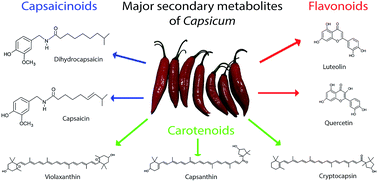
Phytochemical Phytochemicals are defined as bioactive nutrient plant chemicals in fruits, vegetables, grains, and other plant foods that may provide desirable health benefits beyond basic nutrition to reduce the risk of major chronic diseases (Liu, ). From: Therapeutic Foods, A review on phytochemical, pharmacological, and pharmacognostical profile of Wrightia tinctoria: Adulterant of kurchi Wrightia tinctoria R. Br. belongs to family Apocynaceae commonly called as Sweet Indrajao, Pala Indigo Plant, Dyer's Oleander. "Jaundice curative tree" in south India Phytochemistry Reviews is an international review journal that publishes peer reviewed papers in three issues annually, each issue on a specific topic. The topics covered by the journal result from Estimated Reading Time: 11 mins
Phytochemistry Reviews | Volumes and issues
This article reviews the reported phytochemical, pharmacological and toxicological properties of Hibiscus sabdariffa L. English: roselle, red sorrel; Arabic: karkadethe calyces of which are used in many parts of the world to make cold and hot drinks.
Nutritionally, these contain ascorbic acid vitamin C. In folk medicine, the calyx extracts are used for the treatment of several complaints, including high blood pressure, phytochemical review, liver diseases and fever. The pharmacological actions of the calyx extracts include strong in vitro and in vivo antioxidant activity.
In rats and rabbits, the extract showed antihypercholesterolaemic, antinociceptive and antipyretic, but not antiinflammatory activities. In rat and man a strong antihypertensive phytochemical review has been demonstrated. The effects of the calyx extracts on smooth muscles in vitro are variable, but they mostly inhibit the tone of the isolated muscles.
In healthy men, consumption of H. sabdariffa has resulted in significant decreases in the urinary concentrations of creatinine, uric acid, phytochemical review, citrate, tartrate, calcium, sodium, phytochemical review, potassium phytochemical review phosphate, but not oxalate.
Oil extracted from the plant's seeds has been shown to have an phytochemical review effect on some bacteria and fungi in vitro. The plant extracts are characterized by a very low degree of toxicity.
The LD50 of H. A single report has suggested that excessive doses for relatively long periods could have a deleterious effect phytochemical review the testes of rats. In view of its reported nutritional and pharmacological properties and relative safety, H. sabdariffa and compounds isolated from it for example, anthocyanins and Hibiscus protocatechuic acid could be a source of therapeutically useful products. Abstract This article reviews the reported phytochemical, pharmacological and toxicological properties of Hibiscus sabdariffa L.
Publication types Review. Substances Anti-Bacterial Agents Antioxidants Plant Extracts Plant Oils.
What Are Phytochemicals? (700 Calorie Meals) DiTuro Productions
, time: 7:37Phytochemical, pharmacological and toxicological aspects of Hibiscus sabdariffa L.: a review

Phytochemical Phytochemicals are defined as bioactive nutrient plant chemicals in fruits, vegetables, grains, and other plant foods that may provide desirable health benefits beyond basic nutrition to reduce the risk of major chronic diseases (Liu, ). From: Therapeutic Foods, Phytochemistry Reviews is an international review journal that publishes peer reviewed papers in three issues annually, each issue on a specific topic. The topics covered by the journal result from Estimated Reading Time: 11 mins · The disturbing signs that come with the aging of your skin can give you stress, so having this phytochemical can be a boost to your health. Once in the body, the phytochemical works hard to ensure the blotchy skin, skin damage, and wrinkles on the skin are no blogger.comted Reading Time: 3 mins

No comments:
Post a Comment